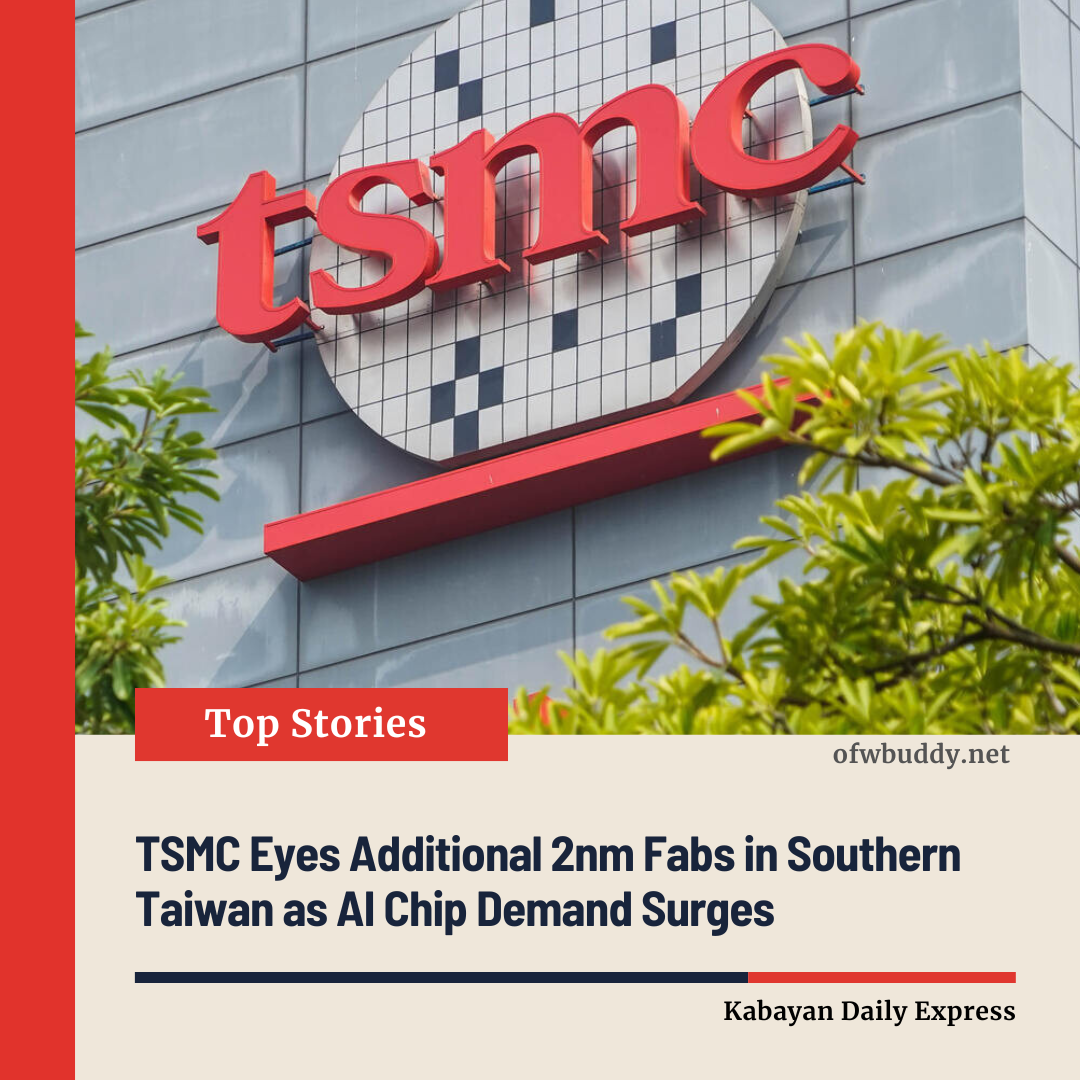Hsinchu, Taiwan (November 25, 2025)— Facing unprecedented demand for advanced semiconductor manufacturing, Taiwan Semiconductor Manufacturing Company (TSMC) is preparing to further expand its 2-nanometer (2nm) production footprint in Taiwan. Industry sources report that the company plans to build three additional 2nm fabrication plants, as its current investment in seven fabs in Hsinchu and Kaohsiung is no longer sufficient to meet the rapidly growing global demand for artificial intelligence (AI) chips.
TSMC’s 2nm capacity is already stretched, with orders for AI-related chips rising sharply. According to semiconductor supply chain insiders, the company has identified the Southern Taiwan Science Park Special Zone—currently under development by the Tainan City Government—as the likely site for the next wave of expansion. Area A of the development zone, covering roughly 40 hectares, is considered suitable for building large-scale wafer fabs. If land acquisition and environmental impact assessments proceed smoothly, construction could begin as early as next year.
The proposed investment could reach NT$900 billion, based on estimates of NT$300 billion per fab.
TSMC Confirms Strong Market Demand, Continues Expansion Planning
TSMC has acknowledged that demand for its advanced technologies remains robust, especially as global AI companies intensify their reliance on cutting-edge chips. The company noted that construction of its A14 fab in Taichung is already underway and that it continues to work with the government to evaluate potential locations for future semiconductor facilities. Officials, however, have refrained from making public comments on the potential new developments.
Meetings With Government Agencies Ongoing
According to supply chain sources, the company has recently engaged the National Science and Technology Council and other government offices to formally outline its expansion needs. The targeted parcels of land in Tainan are part of an ongoing acquisition and development plan intended to support future high-tech industrial zones.
Existing 2nm Projects Already in Motion
TSMC is currently building two 2nm fabs in Baoshan, Hsinchu, and preparing five additional fabs in Kaohsiung’s Nanzi District. The company began initial 2nm mass production this quarter and expects rapid capacity growth throughout next year. Executives anticipate that the 2nm family of processes will become a major driver of long-term revenue.
Taiwan Expansion Continues Despite Major U.S. Investment
While TSMC announced earlier this year that its investment in the United States will rise to US$165 billion, concerns that this might reduce domestic investment appear unfounded. At the time, Chairman and CEO C.C. Wei emphasized that customer demand for AI chips far exceeds current capacity. He stressed that Taiwan would remain a core production hub and highlighted the government’s role in helping secure additional land for expansion.
Why Customers Stick With TSMC
Industry analysts say that while competitors like Samsung and Intel promote their own advanced processes, switching suppliers for cutting-edge chips involves significant risks. Yield rates, production stability, and overall reliability are critical for companies producing AI hardware—areas where TSMC continues to hold an advantage. This reliability has contributed to the ongoing capacity shortage for its most advanced processes.
Nvidia and Global Tech Leaders Push for More Capacity
Nvidia CEO Jensen Huang’s recent visit to TSMC’s Fab 18 in the Southern Taiwan Science Park — along with his participation in the company’s sports event — underscored the importance of TSMC’s 2nm capabilities to global AI development. According to Wei, Huang’s visit was primarily to request additional production capacity, though details remain confidential.
Last week, Wei and former TSMC Chairman Mark Liu received the Robert N. Noyce Award, the highest honor from the Semiconductor Industry Association (SIA). During the ceremony, Wei delivered a rare and candid admission: demand driven by AI is currently three times higher than TSMC’s available production capacity, adding bluntly that capacity remains “not enough, not enough, still not enough.”
TSMC’s planned additional fabs in southern Taiwan signal that the world’s largest contract chipmaker intends to aggressively scale up to meet the next generation of AI computing needs—anchoring Taiwan’s position at the center of the global semiconductor industry.

